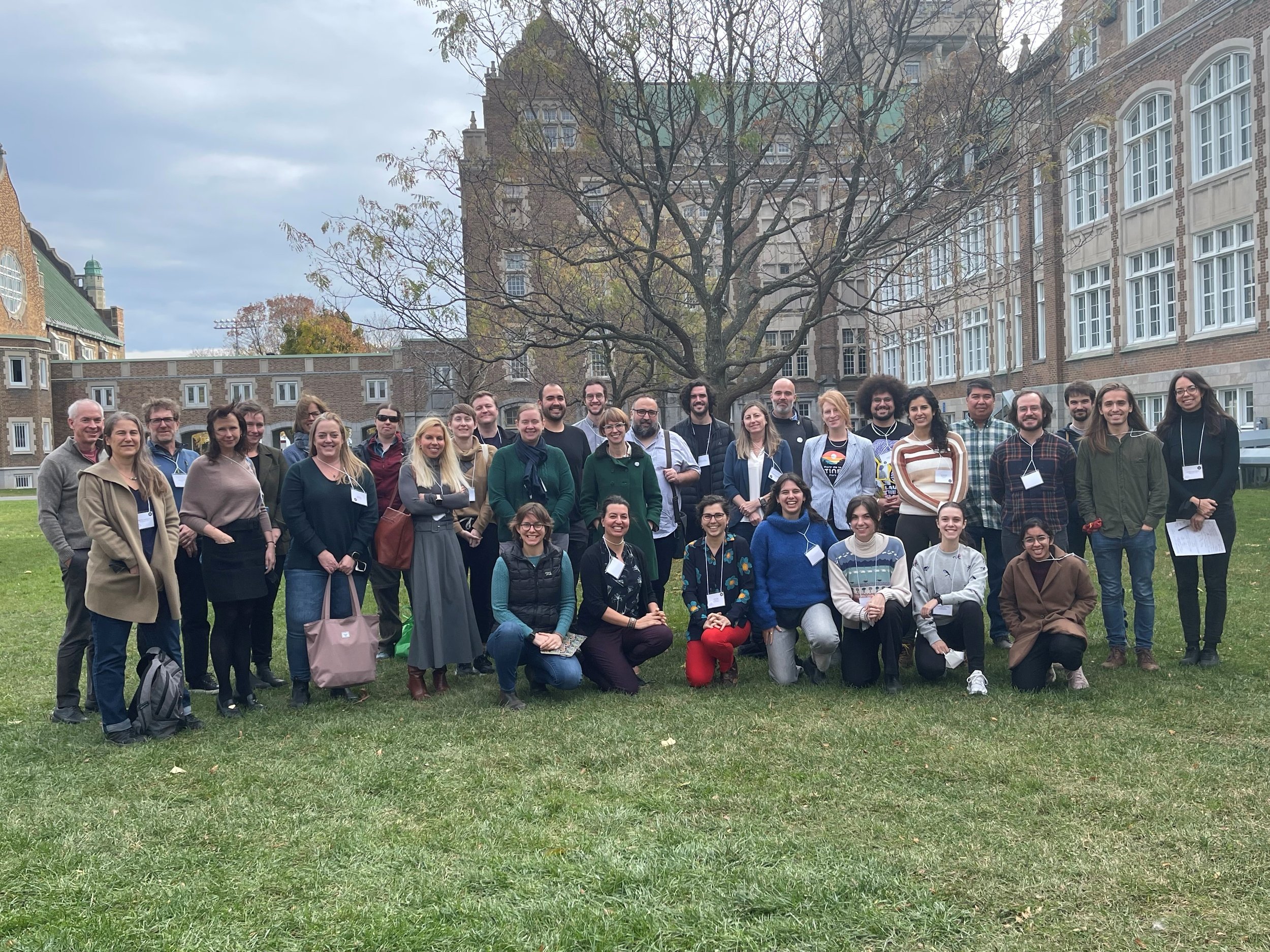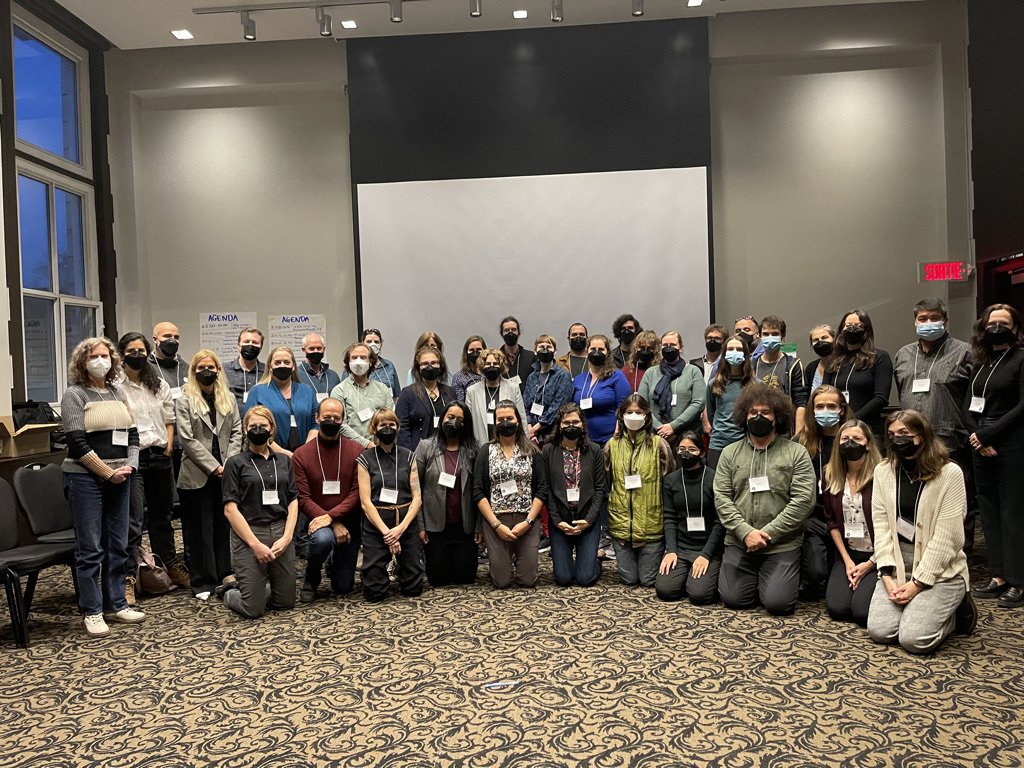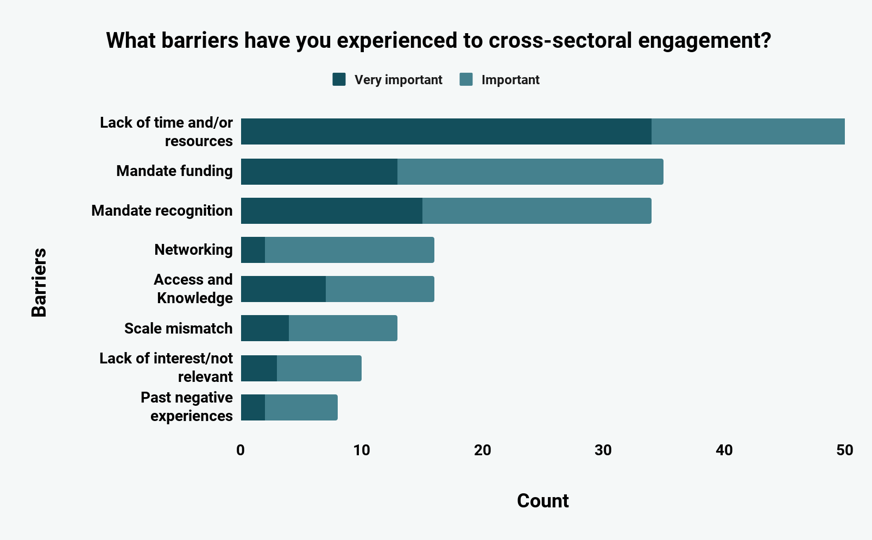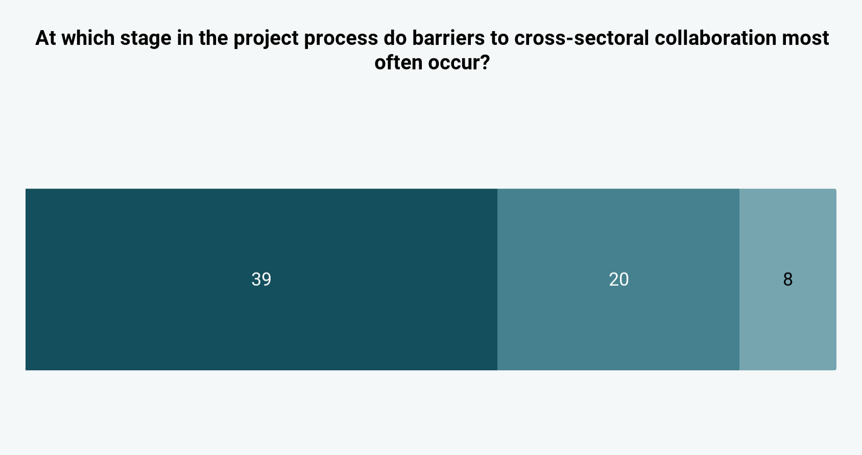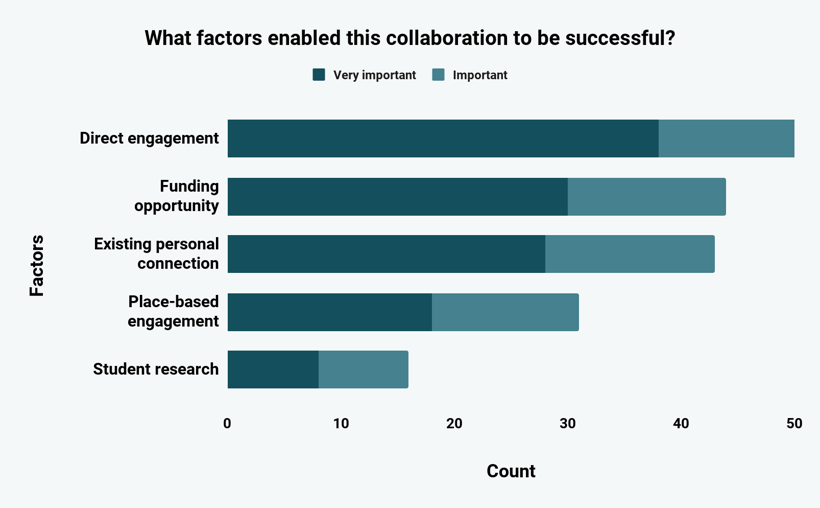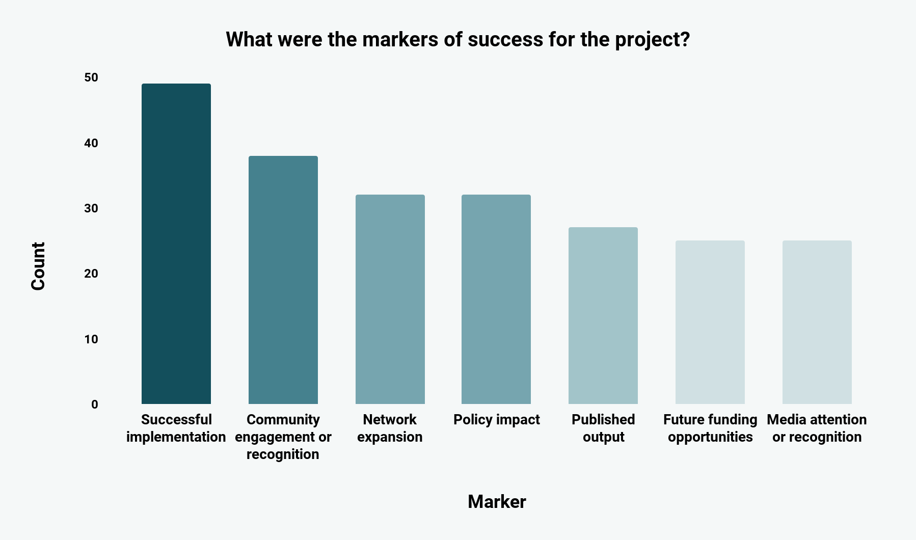Cross-sectoral engagement workshop on urban nature-based solutions
Participants of cross-sectoral engagement workshop, Day 2 , Concordia University, Montreal in November 2023
Participants of cross-sectoral engagement workshop, Day 1, Concordia University, Montreal in November 2023
Defining barriers and exploring solutions
engaging across sectors
Over 40 participants gathered for two days at the Loyola campus of Concordia University in Montreal, Quebec, in mid-November for a cross-sectoral engagement workshop centered around urban forests and nature-based solutions research and projects across Canada. Co-hosted by Carly Ziter (Concordia University) and Barbara Frei (Environment and Climate Change Canada), the workshop was attended by academics from six Canadian universities, researchers, policy analysts, and managers from the federal government (Environment and Climate Change Canada, Natural Resources Canada, Parks Canada, Public Health Agency of Canada), and multiple representatives of non-governmental organizations (Tree Canada, Park People, David Suzuki Foundation, Nature Canada) and communities (Ville de Montreal, Kahnawà:ke Environment Protection Office).
Prior to a workshop a survey on the barriers and solutions for cross-sectoral research and engagement around urban nature-based solutions was broadly circulated (data collected during the workshop and from the survey is under Concordia University’s Human Research Ethics certificate # 30018529). The findings from this work will be part of an upcoming publication, but some interesting preliminary trends are highlighted below.
In plain language, we find:
Respondents to the survey that did engage with governmental policies or programs did so equally at the federal and municipal scales, but very infrequently at the provincial scale.
Barriers to engaging were not related to disinterest or past negative experiences - but were primarily about a lack of time, funding, resources, or recognition (in their respective positions/institutions) for cross-sectoral work.
Trying to get things started is most often when most barriers occurred.
Most of the time when cross-sectoral projects/research were successful it is because there was direct engagement or funding for the work, or it was facilitated by personal connections between individuals in different sectors.
People considered projects or endeavors successful if they led to on-the-ground implementation of the project, community engagement, and/or expanded the network of active collaborators.
Workshop participants were challenged to come up with prototype ideas for actions or projects that would improve or showcase cross-sectoral work on urban nature-based solutions. We are excited to continue to engage with this incredible group of people for the next steps of this work, as well as for future idea sharing and collaborations.
We are always happy to hear more about people that work on urban nature-based solutions research and projects! Feel free to reach out to the Birds & Trees team below.
